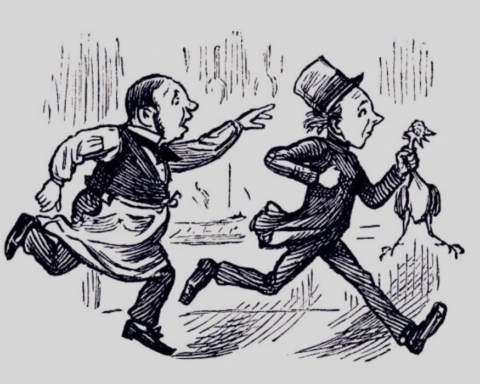For looking at the world from a different viewpoint, one should get to know trees.
When you are walking in a place with trees, knowing the names of trees appears to you of no importance. But some philosophers argue that a different approach to seeing is attained when you are able to differentiate species. This can help in the transformation of the surrounding worldview.
The valuable venture of tree-identification
Even with a guide, attempting to distinguish individual trees might be difficult. This complexity is what makes tree identification such a worthwhile endeavor. This is because it demands a certain kind of focus.
Alice Lounsberry in her “A Guide to Trees” states this fact. According to her, trees are near at hand. So much that we sometimes find ourselves at risk of being unconscious to their existence.
With knowledge about trees comes an artistic sensibility. The forms, colors, and patterns are the aspects through which this quality manifests. It obliges an understanding of seasonal fluctuations of tree species. The wider stages of survival and prosperity into which those phases fall are also to be observed.
We may come to see trees uniquely if we get to know them. Every tree then seems as if a miracle. It is a genuine masterpiece weaving its journey through the globe. Each plant species deserves appreciation and respect.
With the discovery of the names of trees, you are likely to learn something new as well. The awareness of various forms of trees helps you to analyze the conditions. Recognizing plants helps provide information about the soil, climate, and other factors present.
Anthropocentric and Non-anthropocentric approaches to environmental ethics
There are two different attitudes of people. Philosophers concerned about nature hold that humans have certain obligations towards nature. Others maintain humans are the most important entity of all.
These two outlooks are called anthropocentrism and non-anthropocentrism. Anthropocentrism is the idea that humans are the only objects of significance.
They are superior and have an intrinsic value. It also implies that all other resources are to be used for the service of mankind. In short, it regards all other things as means to a human end.
Many philosophers including Christian Diehm consider anthropocentrism wrong. They also regard it as the root of ecological crises.
These are in support of the opposite called non-anthropocentrism. This involves taking direct responsibility for natural objects other than people. Natural objects such as wildlife, trees, and plants are given moral status in non-anthropocentric ethics.
The importance of trees
Trees are necessary for the existence of different species. They serve as a bridge between past, present, and future as well. This is because it is one of the oldest life forms.
Here are some benefits of trees
Health
Tree canopies function as a biological filter, collecting dust and contaminants. Annually, every tree takes up to 1.7 kg of carbon dioxide from the atmosphere. They help minimize sound and give protection from the sun.
Medicinal qualities are present in over 20 species of trees and plants. According to studies, being near trees and greenery lowers blood pressure. It also decreases heart rate and reduces the level of stress within seconds.
Environment
Trees provide us with the oxygen we require to live.
As trees grow, they take in carbon dioxide. This carbon they retain in their wood assists in the moderation of global warming.
As they lose moisture and reflect heat from their leaves, they lower wind speeds and chill the air. Trees are said to be capable of lowering the temperature of a city by 7°C.
Forests absorb hundreds of gallons of rainwater. This helps to avoid soil degradation and erosion.

Wildlife
Microhabitats flourish in trees. When they’re youthful, they provide homes and nutrition for a diverse range of birds. Bats, beetles, and woodpeckers rely on the cover provided by their trunks when they are old.
Community
Trees contribute to a community’s pride by enhancing its unique personality. Inner-city forest is used as a source for learning and to bring people together for strolling and bird-watching. Trees are also fantastic places for kids to play and explore their zest for life.
Economy
Trees can boost retail income, and raise land prices. They also help eliminate unnecessary road maintenance costs.
A number of commodities can be made from tree wood. Furniture, matchsticks, and construction are among them.
But a number of people disregard these benefits. According to them, trees thrive for their own reasons, not for our benefit. Each tree has a distinctive physical characteristic. This intrinsic trait helps the tree sprout higher, lofting leaves in the face of the sun.
There’s no assurance that knowing something about a tree would result in a unique affection for it. But non-anthropocentrism emphasizes that these trees deserve appreciation.
Bringing the marvels of the biological world to the spotlight helps us understand how we should respect them.
Politigory provides in-depth reviews of science, history, humanities, religion, social sciences and arts










